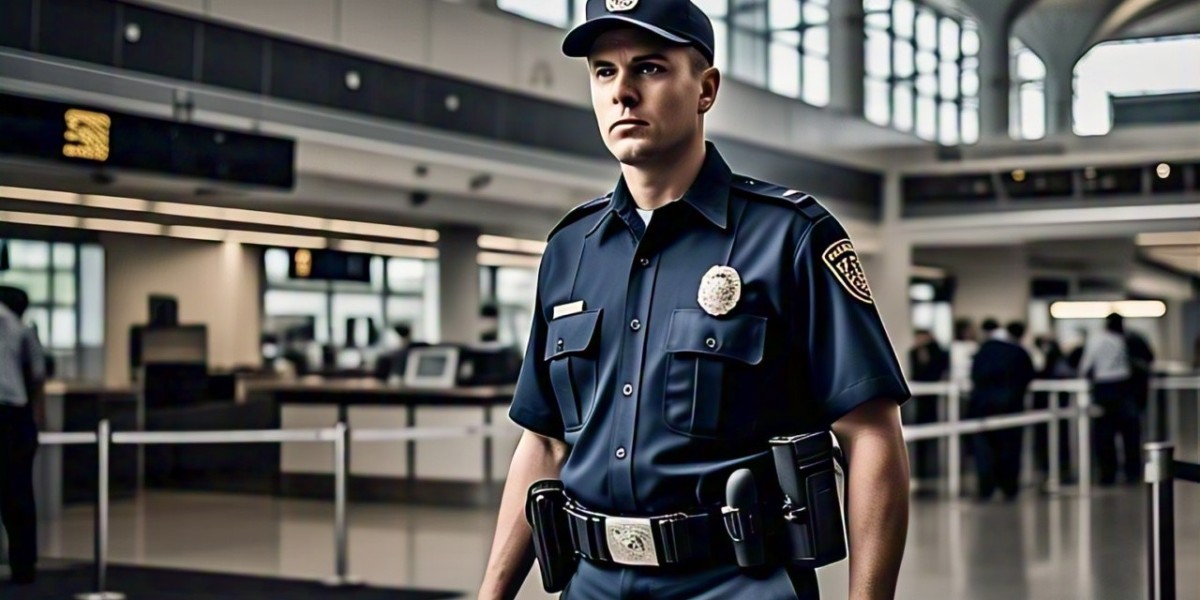The Role of Security Guards in Airport Security
Introduction
Airport security is a top priority for ensuring passenger safety and smooth operations. Security guards play a significant role in protecting travelers, staff, and infrastructure. Their responsibilities extend beyond basic security checks, involving surveillance, threat detection, and emergency response.
The Importance of Airport Security Guards
Security personnel act as the first line of defense against potential threats. Their presence deters criminals and ensures compliance with airport regulations. They help create a safe environment, allowing travelers to move freely without fear.
Controlling Access Points
One of the primary duties of security guards is to monitor and control access to restricted areas. Unauthorized access to sensitive zones can lead to security breaches, making access control essential.
Passenger Screening Assistance
Security guards assist in passenger screening procedures alongside advanced scanning systems. They ensure compliance with security protocols and detect suspicious behavior or prohibited items.
Surveillance and Monitoring
Modern airports rely on surveillance systems, but human oversight remains crucial. Security personnel monitor CCTV cameras, detect unusual activities, and coordinate responses when necessary.
Handling Emergency Situations
From medical emergencies to potential security threats, security guards must act swiftly in crises. Their training allows them to manage evacuations, provide first aid, and coordinate with emergency responders.
Preventing Unauthorized Items
Security personnel ensure that prohibited items do not enter the airport. They conduct luggage screenings, pat-downs, and random checks to enhance security.
Assisting Law Enforcement Agencies
Security guards work closely with law enforcement agencies to report suspicious activities and support investigations. Their vigilance helps prevent crime and maintain order.
Managing Crowds and Ensuring Order
During peak travel seasons, airports can become overcrowded. Security guards help manage crowds, direct passengers, and prevent disruptions that could lead to chaos.
Customer Assistance and Guidance
Apart from security duties, guards assist passengers with inquiries, directions, and support services. Their presence improves customer experience and reduces stress for travelers.
Detecting and Preventing Terrorist Threats
Security personnel are trained to identify suspicious behavior that may indicate potential terrorist activities. Their proactive approach helps mitigate threats before they escalate.
Enhancing Cargo Security
Airport cargo areas require strict security measures to prevent smuggling and theft. Security guards ensure proper cargo handling procedures are followed.
Vehicle and Parking Lot Security
Airports have vast parking areas that require monitoring. Security personnel patrol parking lots, inspect vehicles, and prevent unauthorized access.
Cybersecurity Awareness
With increasing digital threats, security guards are trained in basic cybersecurity protocols to prevent cyberattacks targeting airport infrastructure.
Coordination with Security Guard Services
Professional security services provide trained personnel for airports. Companies like security services provider offer specialized security solutions to ensure the highest safety standards.
The Future of Airport Security Guards
With advancements in technology, security guards will continue to adapt to new challenges. AI-powered surveillance, biometric screening, and enhanced training will shape the future of airport security.
Conclusion
Security guards play an indispensable role in maintaining airport safety. Their vigilance, training, and proactive approach ensure smooth operations and protect passengers from potential threats.
FAQs
1. What are the main responsibilities of airport security guards?
Airport security guards monitor access points, assist in screenings, handle emergencies, and ensure overall safety.
2. How do security guards contribute to passenger safety?
They detect suspicious activities, prevent unauthorized access, and provide assistance during emergencies.
3. Do airport security guards work with law enforcement?
Yes, they collaborate with police and other agencies to maintain security and handle potential threats.
4. What training do airport security guards receive?
They undergo training in surveillance, emergency response, customer assistance, and threat detection.
5. Can security guards prevent terrorist attacks?
While they cannot eliminate threats entirely, their vigilance and training help detect and prevent suspicious activities.
6. How does technology assist airport security guards?
CCTV, biometric screening, and AI surveillance tools enhance their ability to monitor and respond to security threats.






